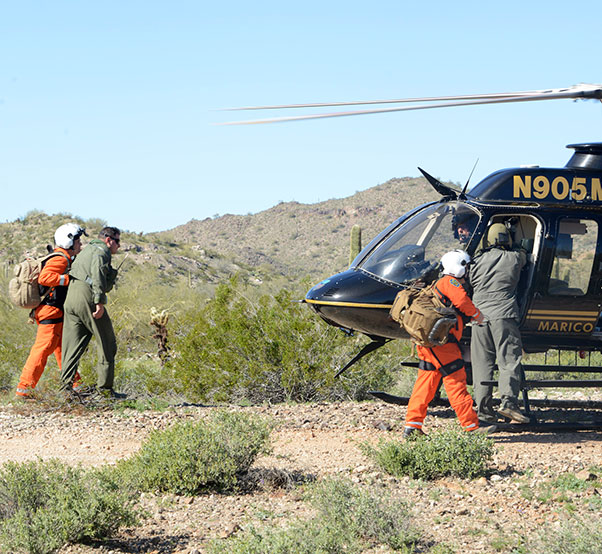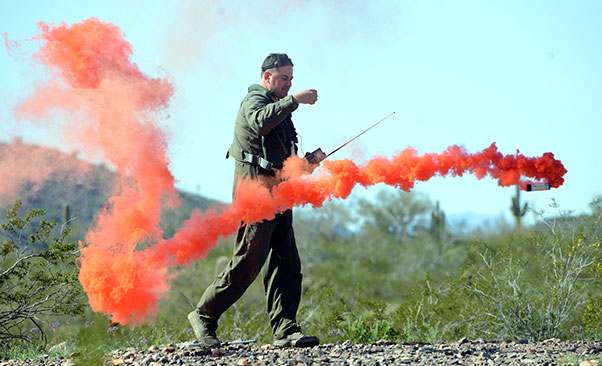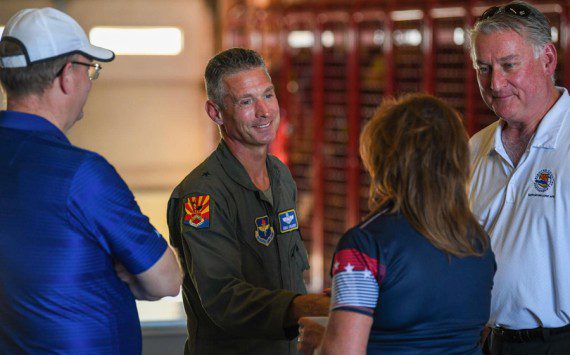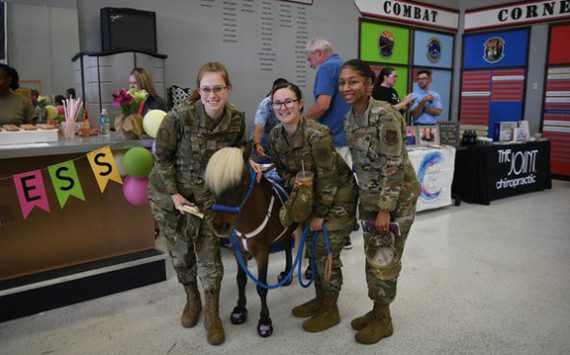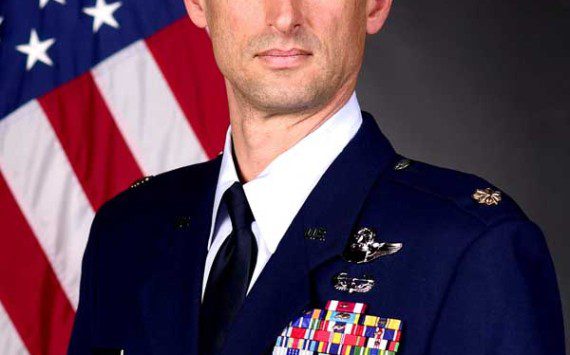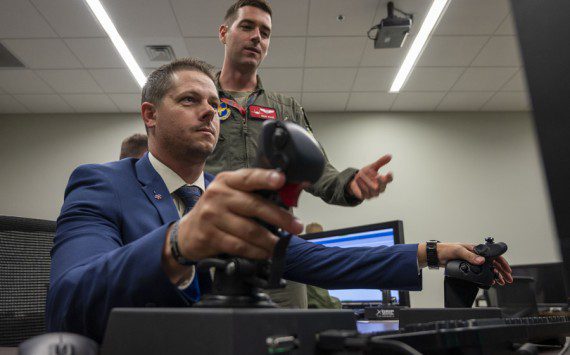Mariacopa County Search and Rescue team guides Maj. Nicholas Suppa, 56th Operations Support Squadron assistant director of operations, to the helicopter during a Major Accident Response Exercise at a remote area in Arizona, 1 Mar. 2017. The exercise highlighted the real way Air Force and civilian assets can be used together to more effectively respond to crises, and potentially save lives.
Luke Air Force Base, Ariz., is well-known for the world-class partnerships it has with the surrounding communities, and those bonds were strengthened as multiple civilian agencies, including the Civil Air Patrol and the Arizona Department of Emergency and Military Affairs, assisted Luke with an exercise to practice their response to an aircraft incident.
“The main goal is to ensure we find the pilot and get him or her the appropriate medical attention as soon as possible,” said Lt. Col. Shawn Finnicum, 56th Fighter Wing Inspector General director of inspections.
The practice scenario involved a pilot who simulated having to eject from a jet in a remote area of Arizona.
“This scenario was unique because we included off base search and rescue agencies to enhance the realism of the exercise and test our abilities to effectively coordinate with our off-base partners,” said Finnicum.
While the scenario was not real, the partnership highlighted the real way Air Force and civilian assets can be used together to more effectively respond to crises, and potentially save lives.
“In a real-world scenario we would rely on military and civilian agencies to rescue a downed pilot,” Finnicum said.
Maj. Nicholas Suppa, 56th Operations Support Squadron assistant director of operations, throws a smoke screen to alert rescue personnel during a Major Accident Response Exercise at a remote area in Arizona, March 1, 2017.
It is important to practice these emergency scenarios to ensure the base and partner agencies are ready if they should ever occur.
“In certain situations and in certain locations our civilian rescue assets and medical personnel will be first on the scene,” Finnicum said. “It is crucial that we train alongside them to ensure we are prepared for this scenario.”






